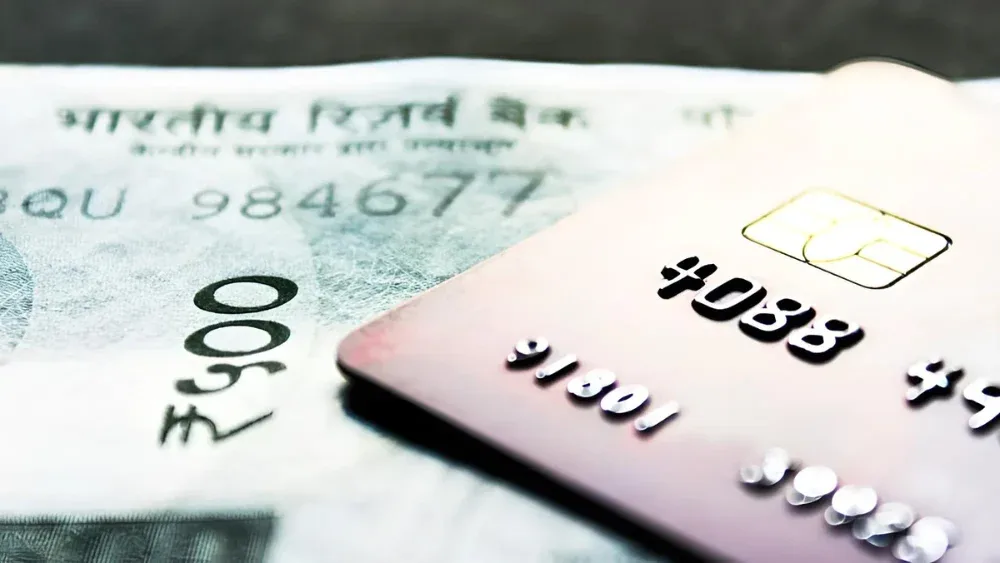Curious about credit card eligibility? Discover what it takes to get approved, from your credit score to income requirements, in this comprehensive guide.
Table of Contents
Introduction
So, you’re thinking about getting your first credit card, or maybe another one to add to your wallet collection. But before you jump the gun, there’s something crucial you’ve got to consider—your eligibility for a credit card. It might sound like a simple process: apply, get approved, and voila! But, as with many things in life, it’s not quite that straightforward.
Banks and credit card companies aren’t just handing out plastic to anyone who asks. They’ve got their own set of rules and guidelines to determine who’s eligible and who’s not. And guess what? Not everyone makes the cut. In this guide, we’ll break down everything you need to know about credit card eligibility—what it is, why it matters, and how you can boost your chances of getting approved.
Understanding Credit Card Eligibility

What Exactly is Credit Card Eligibility?
In a nutshell, credit card eligibility refers to whether or not you meet the criteria set by the credit card issuer. These criteria can include various factors like your credit score, income level, employment status, and even your existing debt. Think of it as a checklist that the bank goes through before they decide to give you that shiny new piece of plastic. If you tick all the boxes, you’re golden. If not, well, it’s back to the drawing board.
Why Does Eligibility for a Credit Card Matter?
You might wonder, “Why should I care about whether I’m eligible or not?” Well, for starters, understanding your eligibility can save you from the embarrassment of a rejected application. Beyond that, it helps you target the right cards that match your profile, so you’re not wasting time (and potentially damaging your credit score) applying for cards you’re not likely to get.
But there’s more to it than that. Knowing your eligibility can also help you improve your financial health. How, you ask? By making you aware of the factors that credit card companies consider important, you can work on strengthening those areas, thereby increasing your chances of getting approved in the future. Plus, it helps you set realistic expectations—after all, nobody likes getting their hopes up only to be let down.
The Key Factors That Determine Eligibility

Your Credit Score: The Magic Number for Your Credit Card Eligibility
When it comes to credit card eligibility, your credit score is probably the most significant factor. It’s like the golden ticket to credit card approval. But what exactly is a credit score, and why does it matter so much?
Your credit score is a three-digit number that represents your creditworthiness. It’s calculated based on your credit history—how well you’ve managed your debts, whether you’ve paid your bills on time, and how much credit you’re currently using. In most cases, a higher credit score means you’re more likely to be approved for a credit card.
So, what’s the magic number? Generally speaking:
- A score of 750 and above is considered excellent.
- A score between 700-749 is good.
- A score between 650-699 is fair.
- Anything below 650 might make it tough to get approved.
But don’t fret if your score isn’t where you want it to be! There are ways to improve it, which we’ll dive into later.
Income Level: Show Me the Money for Credit Card Eligibility
Credit card companies want to know that you have the means to pay back whatever you charge to your card. That’s why your income level is another critical factor in determining your eligibility. Generally, the higher your income, the more likely you are to get approved. But it’s not just about how much money you make—it’s also about your debt-to-income ratio.
Your debt-to-income ratio is the percentage of your monthly income that goes towards paying off debts. If this ratio is too high, it might signal to the bank that you’re overextended and may struggle to manage additional credit. Ideally, your debt-to-income ratio should be below 36% to improve your chances of getting approved.
Employment Status: Job Security Matters for Credit Card Eligibility
Your employment status also plays a role in determining your eligibility for a credit card. Banks want to see that you have a stable job and a steady source of income. If you’re self-employed or work on a freelance basis, this might complicate things a bit, as banks might see this as less stable compared to a traditional full-time job.
That said, if you can show a consistent income stream, you still stand a good chance of being approved. It might just require a bit more documentation, such as tax returns or bank statements.
Existing Debt: How Much is Too Much?
If you’re already juggling multiple loans, credit cards, or other forms of debt, this could affect your eligibility for a new credit card. Lenders want to ensure that you’re not biting off more than you can chew. If you’ve got a mountain of debt, banks might see you as a risky applicant and decide against approving your application.
A good rule of thumb? Try to keep your credit utilization ratio (the amount of credit you’re using compared to your total available credit) below 30%. This shows lenders that you’re responsible with credit and not maxing out your cards.
Age and Residency Status: The Basic Requirements for Credit Card Eligibility
Finally, there are a couple of basic criteria that you’ve got to meet, no matter what. First, you need to be of legal age—usually 18 or 21, depending on where you live. Second, you must be a resident of the country where you’re applying for the card.
These might seem like no-brainers, but they’re crucial nonetheless. If you don’t meet these basic requirements, your application will be denied right off the bat.
How to Improve Your Eligibility for a Credit Card

So, what if you’re not meeting all the criteria just yet? Don’t worry—there are steps you can take to boost your eligibility for a credit card. Here’s how:
Boost Your Credit Score for Credit Card Eligibility
If your credit score is on the lower side, you can take steps to improve it:
- Pay your bills on time: This is one of the most critical factors affecting your credit score.
- Reduce your debt: Pay down your existing debt to lower your credit utilization ratio.
- Avoid applying for too much credit at once: Each application results in a hard inquiry, which can lower your score slightly.
- Check your credit report: Look for any errors or inaccuracies that might be dragging down your score and dispute them.
Increase Your Income for Credit Card Eligibility
Easier said than done, right? But if your income is a sticking point, consider ways to boost it:
- Ask for a raise: If you’ve been in your job for a while and have a solid track record, it might be time to ask for a bump in pay.
- Take on a side gig: Whether it’s freelancing, tutoring, or selling handmade crafts online, a side job can increase your overall income.
- Provide proof of additional income: If you’ve got other sources of income, like rental income or investments, make sure to include this on your application.
Pay Down Existing Debt for Credit Card Eligibility
If you’ve got a lot of debt, focus on paying it down before applying for a new credit card:
- Create a budget: A budget can help you see where your money is going and find extra cash to put towards your debt.
- Consolidate your debt: If you’ve got multiple debts, consider consolidating them into a single loan with a lower interest rate.
- Make more than the minimum payment: Paying more than the minimum amount due can help you pay off your debt faster and save on interest.
Show Job Stability for Credit Card Eligibility
If you’re self-employed or work on a freelance basis, here’s how to improve your chances:
- Keep thorough records: Make sure you’ve got documentation to prove your income, such as tax returns or bank statements.
- Show consistency: Demonstrate that your income is steady over time, even if it fluctuates month-to-month.
- Consider a co-signer: If your employment status is a barrier, having a co-signer with a stable job can improve your chances of getting approved.
Common Myths About Credit Card Eligibility

Let’s bust some common myths about credit card eligibility:
Myth 1: You Need a Perfect Credit Score
While a high credit score certainly helps, it’s not the be-all and end-all. Many people with fair or even poor credit scores still manage to get approved for credit cards. The key is to target cards that match your profile, like secured cards or cards designed for people with less-than-perfect credit.
Myth 2: Once Rejected, Always Rejected
Getting denied for a credit card doesn’t mean you’ll never be eligible. It’s just a temporary setback. By understanding why you were rejected and working to improve those areas, you can reapply in the future with better chances of approval.
Myth 3: All Credit Cards Have the Same Eligibility Criteria
Not true! Different credit cards have different eligibility requirements. Some cards are geared towards high-income earners with excellent credit, while others are designed for students or those rebuilding their credit. It’s all about finding the right fit.
FAQ: Credit Card Eligibility
What factors determine credit card eligibility?
Credit card eligibility typically depends on several factors, including:
- Credit Score: A good credit score (usually 650 or above) is often required.
- Income Level: Your monthly or annual income must meet the card issuer’s minimum income requirements.
- Employment Status: Stable employment or a reliable source of income is important.
- Age: You must be at least 18 years old to apply for a credit card.
- Credit History: A positive credit history with timely payments and low credit utilization helps.
What is the minimum credit score required for a Credit Card Eligibility?
The minimum credit score required varies by card issuer and the type of credit card:
- Standard Cards: Generally require a credit score of 650 or higher.
- Rewards and Premium Cards: May require a higher score, often 700 or above.
- Secured Cards: Designed for those with lower scores or no credit history.
How does my income affect my credit card eligibility?
Your income affects your credit card eligibility because:
- Ability to Repay: Higher income levels suggest you can handle larger credit limits and monthly payments.
- Minimum Income Requirements: Credit card issuers set minimum income thresholds for approval.
What is considered a stable employment status for Credit Card Eligibility?
Stable employment typically means:
- Long-Term Job: A history of consistent employment with a single employer or industry.
- Regular Income: Consistent monthly or annual income that meets the card issuer’s requirements.
Can self-employed individuals apply for credit cards?
Yes, self-employed individuals can apply for credit cards. They will need to provide proof of income, such as tax returns, bank statements, or profit and loss statements.
How does my credit history impact my Credit Card Eligibility?
A positive credit history improves your chances of approval:
- Timely Payments: Demonstrates your ability to manage credit responsibly.
- Low Credit Utilization: Indicates you are not overusing your available credit.
- No Negative Marks: Absence of bankruptcies, late payments, or defaults is favorable.
What are the eligibility criteria for credit cards for students?
Student credit cards typically have relaxed criteria:
- Age: Must be at least 18 years old.
- Income: Some cards do not require significant income; parental income or a part-time job may suffice.
- Credit History: Limited or no credit history is acceptable, but a co-signer may be required.
Can I apply for a credit card with a low credit score?
Yes, you can apply for credit cards with a low credit score, but:
- Secured Cards: These are specifically designed for those with low scores or no credit history.
- Higher Interest Rates: Cards for lower credit scores may come with higher interest rates and fees.
Are there credit cards available for individuals with no credit history?
Yes, options include:
- Secured Credit Cards: Requires a security deposit, which serves as your credit limit.
- Student Credit Cards: Designed for those new to credit.
- Authorized User Status: Being added as an authorized user on a responsible person’s credit card can help build your credit history.
How do credit card issuers verify Credit Card Eligibility?
Credit card issuers verify eligibility through:
- Credit Reports: Checking your credit score and history.
- Income Verification: Requesting proof of income through documents or bank statements.
- Employment Verification: Confirming your employment status and stability.
What if I’m denied a credit card application?
If denied:
- Reason for Denial: You can request the reason from the card issuer.
- Improve Your Eligibility: Work on improving your credit score, income, and credit history.
- Reapply Later: Consider reapplying after addressing the issues that led to the denial.
Can I increase my chances of approval for a credit card?
Yes, you can increase your chances by:
- Improving Your Credit Score: Pay bills on time and reduce outstanding debts.
- Ensuring a Stable Income: Maintain consistent and sufficient income.
- Checking Your Credit Report: Correct any inaccuracies and manage your credit responsibly.
Are there credit cards specifically for people with bad credit?
Yes, cards for those with bad credit include:
- Secured Credit Cards: Requires a deposit that serves as your credit limit.
- Credit Builder Cards: Designed to help build or rebuild credit.
How often can I apply for credit cards?
You can apply for credit cards as often as you like, but:
- Hard Inquiries: Each application may result in a hard inquiry on your credit report, which can impact your credit score.
- Approval Chances: Frequent applications in a short period can negatively affect your chances of approval.
What are some common mistakes to avoid when applying for a credit card?
Common mistakes include:
- Applying for Multiple Cards: Too many applications can lower your credit score.
- Ignoring Eligibility Requirements: Ensure you meet the criteria before applying.
- Overestimating Your Credit Limit: Apply for a card that matches your financial situation.
By: Paisainvests



